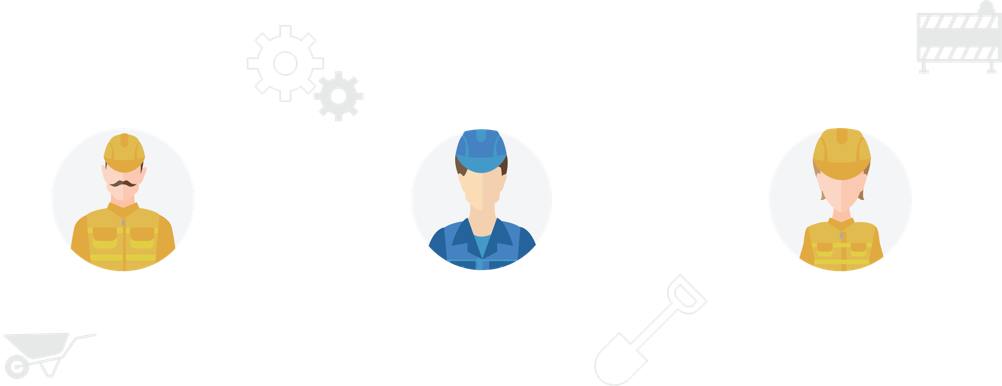
Railway Car Technicians ensure that trains, streetcars, and subway trains are working correctly. They are responsible for inspecting passenger and freight cars for damage and making necessary repairs. This means working with any of the parts involved in the inner/outer works of a rail car, including compressors, air valves, piping, air cylinders, passenger seats, windows, and washrooms.
Job Related Skills, Interests and Values
- Using hand tools, power tools, and welding equipment
- Understanding an observing all safety procedures
- Inspecting passenger and freight trains for damage; diagnosing and repairing any problems
- Repairing and repainting metal and wood materials
- Installing or repairing air valves, bearings, compressors, cylinders, and piping
- Installing, maintaining, or replacing windows
- Repairing upholstery
What Preparation and Training Do You Need?
- Secondary school diploma with math and physics credits
- While not mandatory, completion of a 7,280-hour apprenticeship, including a combination of on-the-job and in-school training, is recommended
- Exam to obtain Certificate of Qualification
What's Your Future as a Railway Car Technician (268R)?
- May work inside a car barn or outside in various weather conditions; may be required to travel with the trains for troubleshooting
- Exposed to dirt, grease, and oil
- Specializations include wheels, axles, or brake lines
- Employers include railway transport and public transportation companies
Wage Rate
Apprentice wage increases with skill and experience. Fully qualified workers earn an average of $25.00 per hour.
Self-Rating
Railway Car Technician (268R)
| Ask Yourself: | Yes | No |
|---|---|---|
| Do you have good manual dexterity and a good eye for detail? | ||
| Are you interested in trains and automobiles? | ||
| Are you able to lift 50lbs comfortably? | ||
| Are you able to follow Health & Safety guidelines? | ||
| Are you comfortable working indoors and outdoors? | ||
| Would you enjoy interacting with site supervisors, customers, suppliers, co-workers and other tradespeople to get the job done? | ||
| Do you like keeping things maintained and in good working order? |
If you checked YES to the majority of these questions, a career as a Railway Car Technician (268R) may be for you!
You might want to look at these similar trades as well;
- Industrial Maintenance Mechanic Millwright
- Bearings Mechanic
- Facilities Maintenance Mechanic
- Machine Fitter
- Construction Millwright
- Refrigeration and Air-Conditioning Mechanic
Construction Millwrights install, maintain, and troubleshoot industrial machinery, mechanical equipment, and other automated and robotic systems. They primarily service the construction industry and often work closely with other tradespeople, such as pipefitters and electricians.
Facilities Mechanics maintain building equipment and system components, including those for heating/ventilation and domestic appliances. They also inspect and perform maintenance on plumbing, air conditioning, and low-voltage electrical systems; inspect fire safety equipment; maintain the building envelope, roofing, and exterior; and perform grounds maintenance.
Metal Fabricators (Fitters) make and repair parts used in the construction of buildings, bridges, tanks, towers, boilers, pressure vessels, and other structures. They lay out, cut, and fabricate structural steel, plate, and different ferrous and non-ferrous metals used in the manufacturing and construction industries.
Bearings Mechanics disassemble, inspect, repair, and clean bearings, seals, and chocks.
Industrial Mechanic Millwrights install, maintain, repair, and remove stationary industrial machinery, mechanical equipment, and automated and robotic systems. They most often carry this work out in industrial plants and factories.